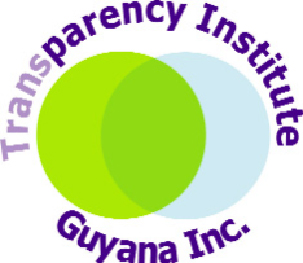The Transparency Institute Guyana Inc (TIGI) is suggesting that international laws could protect Guyana from the most egregious provisions of the oil agreement with an ExxonMobil subsidiary since by contravening domestic law it violates several of the guidelines of the Organisation for Economic Co-operation and Development (OECD).
In the ninth installment of a series of articles in Stabroek News on the Production Sharing Agreement (PSA) with Esso Exploration and Production Guyana Limited (EEPGL) , TIGI argued that Exxon is unlikely to “put up a fight” if Guyana were to request changes to the agreement since the current international business climate does not look favourably at “multinational companies which somehow manage to inveigle hapless third-world countries into agreements in which the multinational holds all the trumps.”
Specifically the OECD which has a goal to “shape policies that foster prosperity, equality, opportunity and well-being for all” has issued guidelines which “have unique potential to strengthen the global system of corporate governance and provide access to remedy for the victims of corporate misconduct.”
The guidelines according to the OECD represent a commitment by some of the most powerful governments in the world to advance responsible business conduct, have “broad coverage of sectors, value chains, and types of human and environmental impacts” and encompass “expectations for the responsibility of corporations to account for the negative externalities of their operations.”
TIGI especially argues that contrary to the concept and principles of the OECD, the PSA entrenches the practice of differential treatment between the multinational and various domestic enterprises. These enterprises it is explained have different expectations in respect of their conduct even though they should be subject to the same operating guidelines.
For example while the operations of local miners are subject to public tender, oil companies such as Exxon are not.
Specific reference is made to a quote attributed to Guyana Gold and Diamond Miners Association (GGDMA) president Terrence Adams who in 2018 lamented that “Government has…undervalued, and under-supported the aggregate efforts of the local miners at a time when the fiscal and other incentives offered to foreign direct investment are well known, and clearly are way beyond what local investors in the gold mining sector are accorded.”
Further while other foreign companies such as the Guyana Telephone and Telegraph (GTT) are subject to a neutral regulator, the Public Utilities Commission, Exxon is not. This is according to TIGI a clear case of differential treatment among foreign operators.
Additionally while the OECD has guided enterprises to refrain from seeking or accepting exemptions not contemplated in the statutory or regulatory framework related to environmental, health, safety, labour, taxation, financial incentives, or other issues, Exxon has managed not only to have the government pay its taxes but has also been able to proceed to production without the granting of an environmental permit as required by law.
The institute stresses that international guidelines recognize “obeying domestic law as the first obligation of enterprises” but the PSA reads like a document imposing its own laws to circumvent local legislation rather than one which is subject to the laws applicable in the country as provided for by the OECD.
One of the first clauses of the PSA, Article 1.3, provides for the “Agreement” made between Exxon and government on the provisions of a Petroleum Prospecting License to be read as part of the “provisions of such license.” TIGI stresses that the clause rather than making the agreement subject to Guyanese law says the agreement trumps the law while Article 25 gives Exxon the freedom to change the ownership of the license at its own pleasure.
Moreover government overstepped its authority when at Article 26.3 it “irrevocably” waived any claim of immunity for itself, its agencies, its enterprises and any of its assets with regard to any arbitration or any proceedings to recognize or enforce an arbitral award made in Exxon’s favour.
Contrary to this section of the agreement, Guyana’s Arbitration Act at Section 32 (3) specifically provides that an arbitration award will not be enforced if its enforcement is contrary to the public policy of Guyana.
Arguing that the EEPGL PSA itself collides with a number of public policy issues, TIGI concludes that its enforcement would therefore be invalid by virtue of being against public policy.
Another provision of the PSA according to TIGI has seen the agreement “accidentally shoot itself in the head” since it subjects itself to both Guyanese law and the rules of international law as may be applicable or appropriate, including the generally accepted customs and usages of the international petroleum industry even as it breaches international custom by exceeding the maximum allowable blocks under a single licence and breaches international practice by the sheer size of the superblock produced by the combination – 26,800 sq km.
Finally, while the OECD says that enterprises should contribute to the development of environmentally meaningful and economically efficient public policy by means of partnerships or initiatives that will enhance environmental awareness and protection, the concerns of local fishermen regarding oil spills have not been addressed to their and the rest of the nation’s satisfaction nor has the concerns of the Shell Beach ecotourism site.
“The insurance policy, if it exists, to compensate for these risks, is in the hands of Exxon,” TIGI laments.










